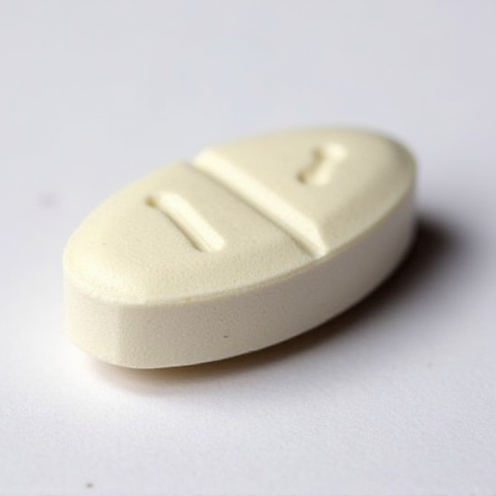Dibeform Tablet
Product Info
| Prescription required | Yes |
| Marketer | Scott Edil Pharmacia Ltd |
| Active Ingredient | Glibenclamide (5mg) + Metformin (500mg) |
| Storage | Store below 30°C |
| Habit Forming | No |
| Therapeutic Class | ANTI DIABETIC |
| User Rating | 4.6 |
| User Reviews | 488 |
FAQ


































Dibeform Tablet Reviews
Dibeform should be taken with food. Take it regularly at the same time each day to get the most benefit. Your doctor will decide what dose is best for you and this may change from time to time according to how it is working according to your blood sugar levels.
Keep taking this medicine, even if you feel well or your blood sugar levels are controlled. If you stop it without consulting your doctor, your blood sugar levels could rise and put you at risk of kidney damage, blindness, nerve problems and loss of limbs. Remember that it is only part of a treatment program that should also include a healthy diet, regular exercise, and weight reduction as advised by your doctor. Your lifestyle plays a big part in controlling diabetes.
The most common side effect of Dibeform is low blood glucose levels (hypoglycemia). Make sure you recognize the signs of having low blood glucose levels, such as sweating, dizziness, headache, and shaking and know how to deal with it. To prevent this, it's important to have regular meals and always carry a fast-acting source of glucose such as sugary food or fruit juice with you. Drinking alcohol can also increase your risk of low blood sugar levels and should be avoided. Other side effects that may be seen on taking this medicine include nausea, diarrhea, stomach pain, headache, and upper respiratory tract infection. Some people may find that they put on weight with this medicine.
You should not take it if you have type 1 diabetes mellitus, if you have diabetic ketoacidosis (high levels of acid in your blood), or if you have severe kidney or liver disease. Before taking this medicine, tell your doctor if you have ever had heart disease. It may not be suitable. Pregnant or breastfeeding women should also consult their doctor before taking it. Your blood sugar levels should be checked regularly and your doctor may also advise blood tests to monitor your blood cell counts and liver function.
How Dibeform Tablet Works
How to Use Dibeform Tablet
Uses of Dibeform Tablet
- Type 2 diabetes mellitus
Dibeform Tablet Side Effects

Safety Tips
Quick Tips
- Inform your doctor about your diabetes treatment if you are due to have surgery under a general anesthetic.
- Your doctor may check your liver function regularly. Inform your doctor if you develop symptoms such as abdominal pain, loss of appetite, or yellowing of the eyes or skin (jaundice).
- Take it with food to lower your chance of having an upset stomach.
- You should continue to exercise regularly, eat a healthy diet, and take your other diabetes medicines along with Dibeform.
- It can cause hypoglycemia (low blood sugar level) when used with other antidiabetic medicines, alcohol or if you delay or miss a meal.
- Your doctor may check your liver function regularly. Inform your doctor if you develop symptoms such as abdominal pain, loss of appetite, or yellowing of the eyes or skin (jaundice).
- You should continue to exercise regularly, eat a healthy diet, and take your other diabetes medicines along with Dibeform.
- Inform your doctor about your diabetes treatment if you are due to have surgery under a general anesthetic.
- Tell your doctor immediately if you experience any deep or rapid breathing or if you have persistent nausea, vomiting, and stomach pain as Dibeform may cause a rare but serious condition called lactic acidosis, which is an excess of lactic acid in the blood.
- It can cause hypoglycemia (low blood sugar level) when used with other antidiabetic medicines, alcohol or if you delay or miss a meal.
- Tell your doctor immediately if you experience any deep or rapid breathing or if you have persistent nausea, vomiting, and stomach pain as Dibeform may cause a rare but serious condition called lactic acidosis, which is an excess of lactic acid in the blood.
- Take it with food to lower your chance of having an upset stomach.
References
- Glyburide and Metformin HCl Tablets [FDA Prescribing information]. Princeton, NJ: Bristol-Myers Squibb Company; 2013.
- Glyburide and Metformin HCl. Princeton, New Jersey: Bristol-Myers Squibb Company; 2009.
- Glyburide and Metformin HCl [Drug Label]. Princeton, NJ: Bristol-Myers Squibb Company; 2013.
